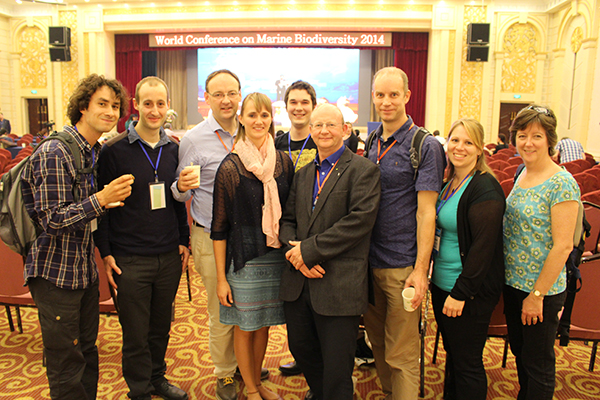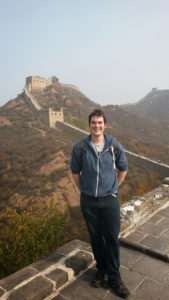Several members of the CBESS consortium descended on Qingdao, China this month for the World Conference on Marine Biodiversity (WCMB 2014). The conference was the third of its kind, bringing together a multinational audience of marine biologists. It was an excellent a platform for CBESS members to present their research and join the debate on the current issues and challenges facing the development of marine biodiversity.

Dr Jasmin Godbold and Prof Martin Solan of the University of Southampton chaired a session on the effects of multiple stressors on ecosystem process, functioning and services. Click here for session info.
The University of St Andrews also had a strong presence. Kate Wade delivered a talk on saltmarsh restoration, Joe Kenworthy presented on comparative ecology of estuaries, and Prof David Paterson gave a talk on the research he’s been conducting with Julie Hope on the biological control of sediment dynamics.
Here Joe tells us about his experience at the conference:

“My research was presented and received positively. While singular stressors have been studied extensively, multiple stressor effects are becoming more popular among the scientific community. Not only are multiple stressors likely to coincide in natural systems, but they are also not straightforward to interpret based upon studying singular stressors, resulting in additive, cumulative or synergistic effects dependant on the system or stress in question.
My attendance at this session allowed me to gain new insights and perspectives on familiar topics.Besides making use of the fantastic banquets of Chinese cuisine, the international experience of visiting Asia was beneficial in other ways. Not only did this bring together supervisors from both of my partner universities – a tough feat given they are on opposite sides of the world – it was a great platform to network with researchers close to home as well as those further afield, such as China, the USA and Europe. This was extremely important and beneficial to start the ball rolling for life beyond my PhD and to get me thinking of career progression as an early career scientist.”
